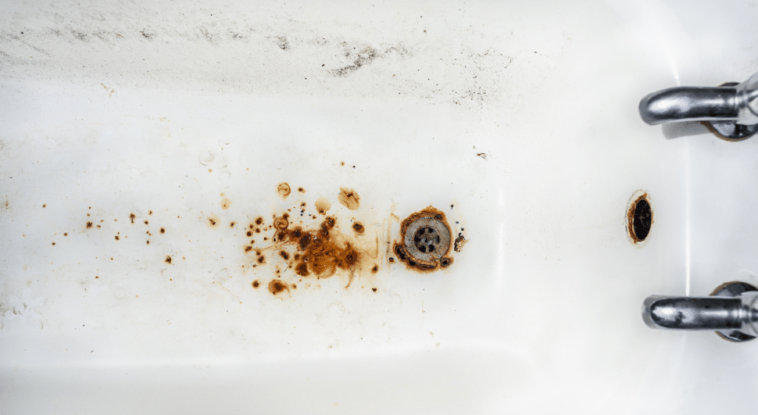Brilliant white the first few days, your bathtub can sometimes lose its splendor over time. This is particularly the case when it develops unsightly rust spots with wear and oxidation. As a result, you won’t want to take a bath in this small, damaged bathroom. Fortunately, you don’t necessarily need to change it right away, which represents quite a budget! In fact, you can restore it and make it shine without harmful chemicals. Here are some natural tips and grandmother’s solutions to save your rusty and tired bathtub. For your cast iron or enamel bathtub like your sinks, you will inevitably find an economical anti-rust tip to help you regain immaculate shiny white in the bathroom.
What household products for cleaning the bathtub?
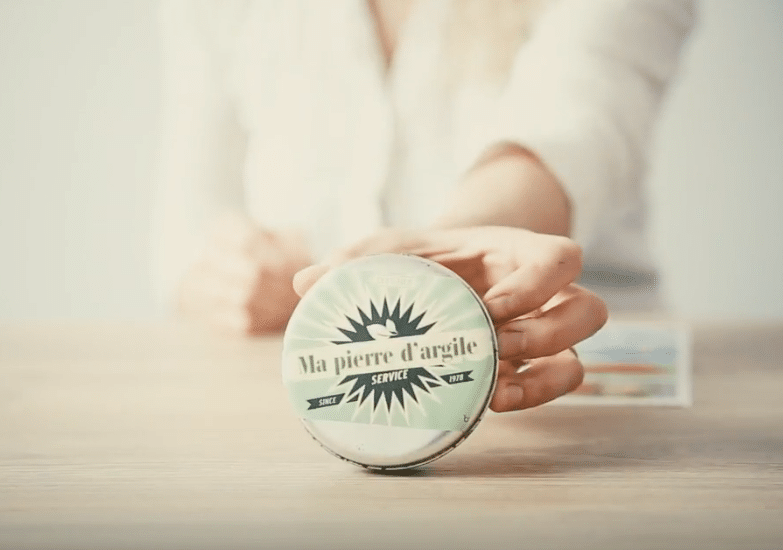
We have already presented to you a method for cleaning your bathtub without hurting your back. However, we had forgotten to address the issue of anti-rust products… However, there are a lot of them! Certain natural and ecological products such as clay stone (or white stone) as well as white vinegar could be completely suitable for a light rust stain. Plus, you won’t have any scratches. Whether the rusty mark is recent or old, we strongly advise against bleach. In fact, this chemical will only promote corrosion and erosion of the bathtub materials. Avoid like the plague on your poor little enamel bathtub, already very tired, or its taps!
How to remove rust from the bathtub in a very effective natural trick
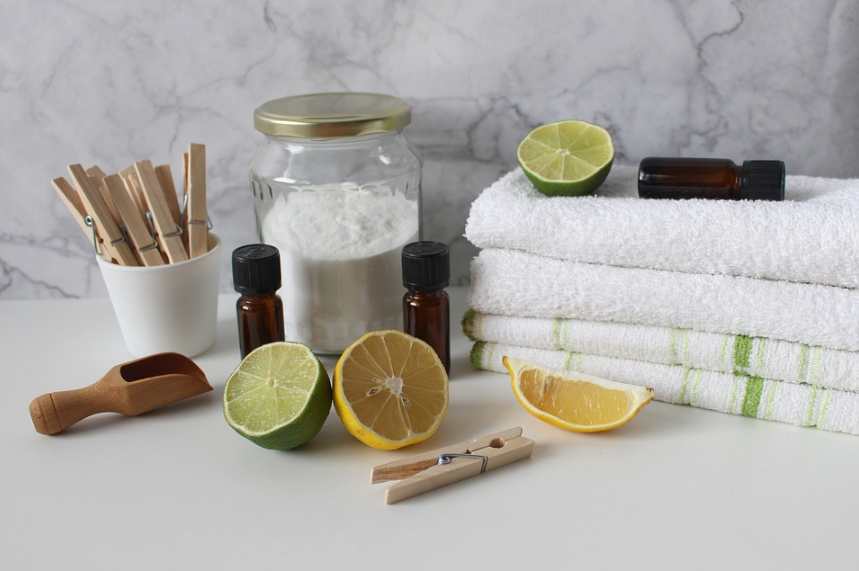
Here, we use two natural ingredients: fresh lemon juice (or fresh lime) and fine salt. The first provides acidity as well as shine and the second a gentle abrasive action. Then pour the citrus juice directly onto the stain and cover with the salt. Then, it is necessary leave on for three to four hours in the sink or bathtub. For areas that are difficult to cover, do not hesitate to use a microfiber cloth. You will soak it with these two ingredients before applying to the walls. Finally, rub with a nylon cloth effective against rust which will finish stripping the stain. Rinse thoroughly.
How to repair a rusting bathtub?
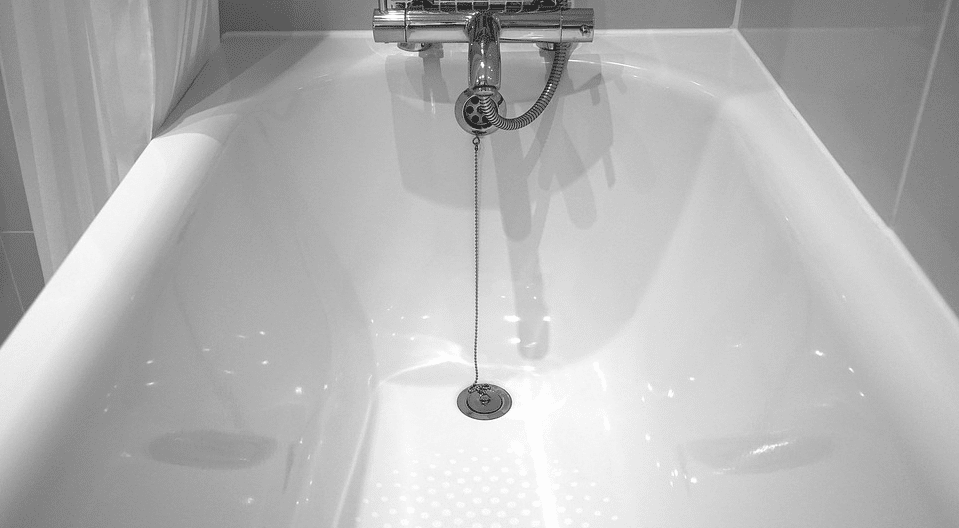
Nothing helps against rust? You will then need to use your DIY skills! After cleaning, remove as much as possible with a sandpaper (or sandpaper) or a wire brush. Then cover everything with epoxy resin, polyester putty or enamel in a tube. In fact, it will depend on the type of bathtub and you may therefore need to seek advice from a DIY store to obtain a durable result. In general, several applications are necessary to obtain a good result (at least a second coat). Finally, after drying, it is necessary to repaint. Give a special coat of paint to finalize the repair and renovation of rusty bathtub.
Don’t want to start repairs because you’re afraid of damaging it or you don’t want to hire help? In this case, all you will have to do is change the bathtub. For example, choose a acrylic, resin or wooden bathtub. Indeed, they are resistant and do not rust!
Good to know:
It is also very easy to remove rust from an object (tools, etc.) or to remove rust stains from clothing!
How to prevent rust from appearing on a bathtub?
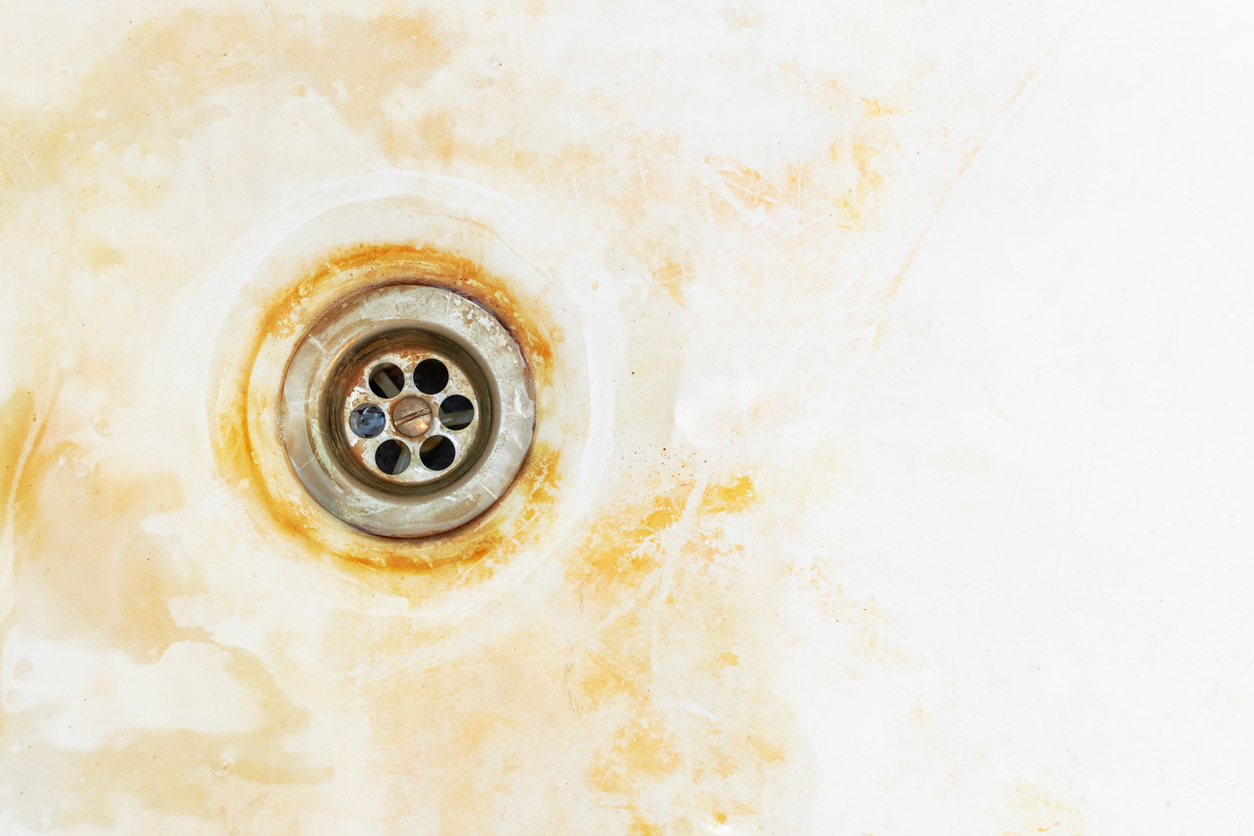
To prevent rust from forming on a bathtub, it is crucial to choose corrosion-resistant materials (such as acrylic, fiberglass or porcelain enamel) rather than enameled steel or cast iron. These tough materials are not only durable, but they also provide a protective barrier against moisture, the main cause of rust. If your bathtub is metal, it will need to be properly enameled to prevent direct contact with water and maintained daily, which can be time-consuming.
Regular maintenance is essential to prevent rust. After each use, be sure to dry the bathtub thoroughly with a soft cloth or towel to eliminate all traces of humidity. Pay particular attention here to areas where water tends to accumulate such as around the drain and faucets to reduce stagnant humidity, and therefore the risk of corrosion.
The use of gentle and/or natural cleaning products (such as white vinegar) is recommended, as abrasive cleaners can damage the protective coating of the tub, making it more susceptible to rust. It is therefore best to avoid cleansers containing abrasive powder, concentrated bleach or hydrochloric acid. Additionally, it is advisable to periodically check the joints and areas around the drain, as water leaks can cause moisture build-up, thereby promoting corrosion.
Finally, inspect the bathtub regularly to spot any scratches or chips in the enamel. Repair small cracks or scratches immediately with sealant to prevent water from entering and causing rust. Against these chips, a simple touch-up kit can prevent water from penetrating and causing rust.


